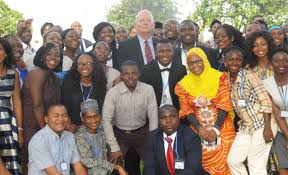In a bid to deepen financial intermediation and technology supply for infrastructural development in the country, the Japanese government has expressed interest in partnering with the Federal Government to provide high-quality facilities to drive sustainable and inclusive growth.
According to the Japanese government, addressing the infrastructure gap, which remains a major bottleneck for global growth, is important in driving regional and global trade.
Japan’s Deputy Minister for Construction, Engineering and Real Estate Industry, Ministry of Land, Infrastructure, Transport and Tourism, Yasuki Kaibori explained that while other Asian tigers are exploring opportunities in the nation’s oil and gas sector, Japan is seeking investments in the infrastructure sector in a bid to promote industrialisation and trade.
Kaibori, while speaking at the Nigeria-Japan public-private conference for high-quality infrastructure in Lagos, noted that the choice of Nigeria is based on its size and impact on regional trade especially in the sub-Saharan African region.
“To support infrastructure development, our government has advocated the promotion of investments in high quality infrastructure. Such infrastructure development would certainly enhance the connectivity of African states and give birth to numerous employment opportunities locally as well as upgrade the skills of the local labour power and uplift the living standards of the population”.
On her part, the President, Lagos Chamber of Commerce and Industry, Dr. Nike Akande, stated that infrastructural deficit in Nigeria had continued to hinder growth and development.
Citing recent data from the African Development Bank, she said “Nigeria’s core stock of infrastructure is only 20-25 per cent of GDP, compared with 70 per cent recorded by other middle-income countries. This leaves an infrastructure deficit of $300bn.
“While there are considerations on the use of pension funds for infrastructure financing and the 2016 federal budget allocating about N1.8tn to capital expenditure, there is definitely a need for foreign direct investment to deepen finance for infrastructure in Nigeria.”
Also making reference to a report from the Infrastructure Concession Regulatory Commission, Akande noted that N3.1trillion was required to bridge the infrastructure gap in the transport sector.
The LCCI president described the Nigeria-Japan public-private conference for infrastructure as well timed, considering the level of infrastructural deficit in the country.


